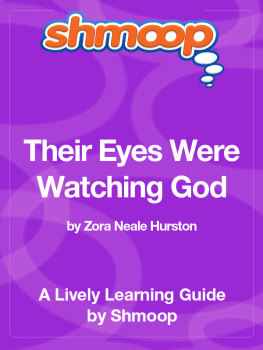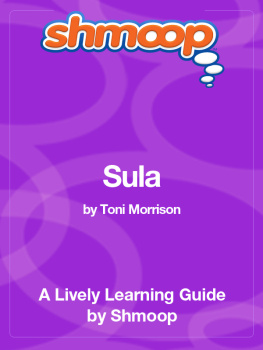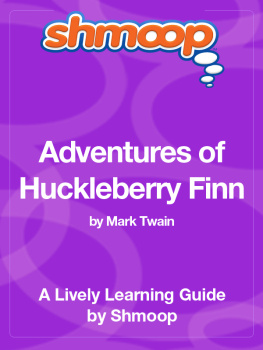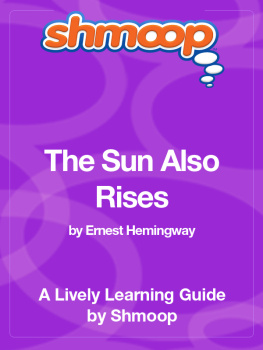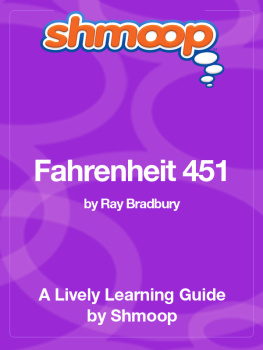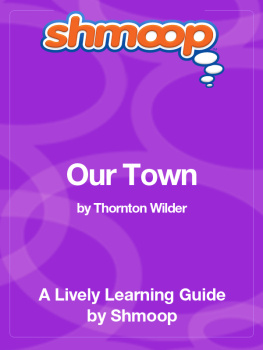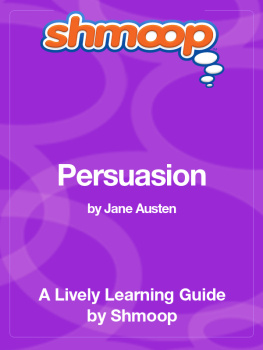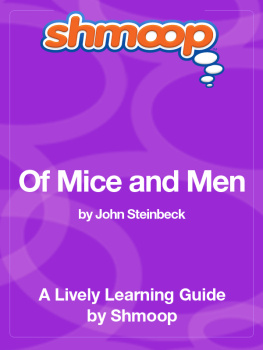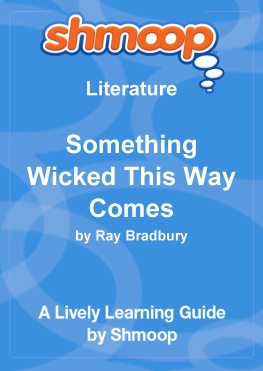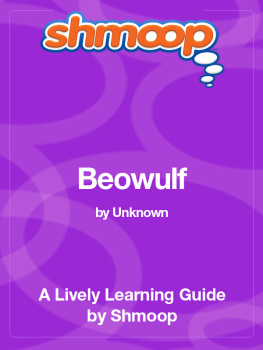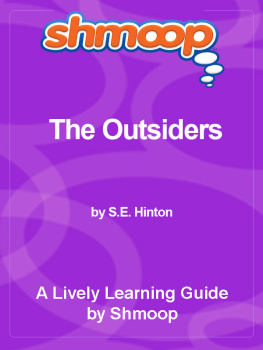
Table of Contents
In a Nutshell/Overview
Zora Neale Hurston wrote Their Eyes Were Watching God over seven weeks in Haiti. The novel was published in 1937. Though the novel was written while abroad, Hurston's home base was actually New York, where she played a prominent role in what we now call the Harlem Renaissance - a time of immense literary, musical, and artistic creativity in the black community of Harlem. Their Eyes Were Watching God is Hurston's most famous novel. The storyline follows the life of Janie Crawford, a black woman in search of true love and her true self. Both the novel and Hurston were not very well known until 1975, when another African American female writer, Alice Walker, wrote an article entitled "In Search of Zora Neale Hurston." This piece resulted in a renewed interest in Hurston and her writing.
Why Should I Care?
"Love ain't somethin' lak uh grindstone dat's de same thing everywhere and do de same thing tuh everything it touch. Love is lak de sea. It's uh movin' thing, but still and all, it takes its shape from de shore it meets, and it's different with every shore" (20.7).
Love. We love talking about it. We love reading about it. We love watching it unfold. We love pining for it. Consider yourselves very lucky, Shmoopsters, because in reading Their Eyes Were Watching God, you get to meet one of the greatest philosophers of love: Janie Crawford.
We don't know about you, but sometimes, even in spite of ourselves, we think that love has to fit a certain mold. We look to Hollywood to tell us about love, and we see Branjelina or the endless boring couples that make up romantic comedies. When we're little kids we learn that love should adhere to a strict timeline of "Girl and Boy sittin' in a tree, k-i-s-s-i-n-g, first comes love, then comes marriage, then comes the baby in the baby carriage."
But a lady like Janie doesn't work in this structure. First of all, Janie has two bad, loveless marriages. Not to mention, there are no babies in baby carriages for her. So when a much younger, charismatic man shows up, Janie can't really experience true love with him, right? That wouldn't fit the love mold.
Wrong. Janie defies convention, and she proves the cynics wrong. She challenges traditional notions of who should love whom and of how people should love each other. She formulates her own philosophy: love is like the sea, ever-changing and taking the shape of every shore it meets. Love comes in all shapes and forms, and it is different with every person we love.
Whats Up With the Title?
The precise meaning of the title is up for debate, although it touches upon many of the book's important themes. There are two primary points in the novel that reference the title. Firstly, "The time was past for asking the white folks what to look for through that door. Six eyes were questioning God" (18.30). Shortly thereafter, a second important sentence appears: "They seemed to be staring at the dark, but their eyes were watching God" (18.39).
These two quotes hint that the title relates to the theme of race. In the first quote, Hurston in many ways accuses African Americans of looking to Caucasians to learn what their future holds. The black community questions God only after they realizes that white people can't give them the answer. This seems to be a bad move; by following what the white people have been doing - hanging around the Everglades when a hurricane is coming - the African Americans have been led into danger and suffer through a hurricane. In the second quote, the black people seem to be looking at darkness - perhaps looking to black people or looking beyond race because everyone is the same when the lights are out. However, though they seem to be looking at "the dark," they're actually looking at - rather than questioning - God. The switch from questioning to watching potentially means two things. Firstly, the people could have gained faith in God. Alternatively they may no longer be asking what their future holds, but watching to see what God will bring.
Why make this the title of the whole book? Good question. The title is cryptic, but it could means that the book is about racial and personal independence and not following what others tell you your future holds, but instead following God. Janie seems to do just that. She rejects other peoples' ideas of what she should want in life. Most of the black characters' notions of what they should desire seem born out of slavery. Nanny in particular, who was a former slave, envisioned that the best possible life was to live like a wealthy white woman with nice material belongings and plenty of leisure time. Nanny looked to Caucasians to determine what her future should hold, and was led astray. Janie, however, goes after what she wants in life: love. We could see Janie as having eyes watching God, rather than watching other people.
The title can also be looked at from the slave/master standpoint. In the first quote, the African Americans have realized that looking to the past slave masters, the white people, won't do. So they look to the "Ole Massa" (18.29) or God. This has several implications. Firstly, that God is the master of everyone - black and white - which is a rather equalizing notion. The second implies that God is the master and humans are
slaves. As slaves, free will is irrelevant or non-existent. It seems that peoples' futures are determined by fate or God. This point is further driven home by nature and agricultural imagery found throughout the novel. Tea Cake, Janie, and their Everglades friends are all agricultural workers - essentially people that manipulate nature to do their bidding. By looking at agriculture, man seems to have much control over nature and fate. However, God shows up and can manipulate nature to a much larger degree - He comes with a hurricane and flood waters. God makes it clear who the boss really is, and who can actually control nature and fate.
In the context of the entire book, the title would seem to mean that individual free will is irrelevant, only fate or God's will matters. Looking at the second quote again, the people are looking into the darkness; their fate is not illuminated, so they look to God because only He knows what will befall them. In this light, the title implies that nothing is earned by Janie in the book - her happiness and sorrow is all God's doing. Her eyes then look to God wondering what he will bring into her life next.
Writing Style
Coming soon!
Tone
Celebratory, Sympathetic
Hurston's tone is one of deep appreciation and joyous celebration of the richness of African-American culture. She depicts her black characters holistically, with a whole range of flaws but also redeeming attributes. Many scenes dwell on colorful stories and playful conversations among neighbors in black communities. Although the black vernacular is more a stylistic choice than one of tone, its very presence proves that Hurston considered it something special.
More than anything, Hurston's text is compassionate towards all of its characters. Although Janie condemns some characters for their unforgivable sins, the text takes the time to explain the mentality of every major character - giving readers the context necessary to understand why each character acted as he or she did. Thus, readers can see the often logical and emotionally moving causes that motivate each character's actions.
Narrator Point of View
Third Person (Omniscient)
In the first chapter, it's clear that the narrator is omniscient because she gives insight into the thoughts of Janie, Pheoby, and the gossipy Eatonville women sitting on their porches. Though technically we know that chapters 2-20 are a narrative that Janie is telling to Pheoby, Janie's life story appears as a flashback told by the omniscient narrator. The only portions told in Janie's voice are in quotations, so those sections are not strict narration, but dialogue.

